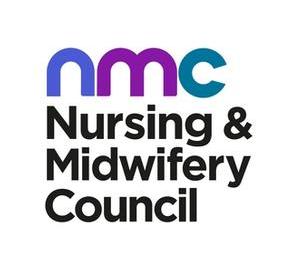
The Nursing and Midwifery Council (NMC) has been a pupillage provider for over a decade and confirmed its Authorised Education and Training Organisation (AETO) status in 2021. It offers one pupillage each year based within its Case Preparation and Presentation Team, which deals with the final adjudication stage of the fitness to practise process.
The pupil's experience

Rebecca Paterson completed pupillage at the NMC in September 2023 and is now employed as a lawyer in the Case Preparation and Presentation Team. Prior to commencing pupillage, Rebecca appeared pro bono in hearings at the Employment Tribunal and worked as a tribunal clerk in fitness to practise hearings brought by the General Medical Council.
As an employed pupil at the NMC, I benefitted from gaining a holistic view of fitness to practise proceedings. By holding a caseload and acting as a ‘reviewing lawyer’ in some cases and solely as a presenter in others, I was afforded a unique perspective of the legal issues that arise at different stages of legal proceedings.
During my first six months, I shadowed all aspects of case preparation and presentation. I drafted advice, joined the General Counsel Team, and regularly observed fitness to practise hearings. Highlights include being sent to Belfast for a week to observe a physical hearing and going to the Royal Courts of Justice to shadow a High Court Appeal.
During second six, advocacy was the key focus. I spent most of my time developing my oral advocacy skills by presenting interim and substantive cases before panels. In my final month of pupillage, I had gained enough experience to present an application on behalf of the NMC at the High Court. The most notable thing about that experience was the level of support I received, not only from my pupil supervisor, but also other experienced members of the team.
Support was a common theme throughout pupillage. As well as having very approachable supervisors and legal colleagues, I had an independent line manager who helped me balance my priorities and effectively manage my work-life balance. This meant taking my annual leave entitlement and also having enough time in the evenings and weekends to pursue hobbies and get involved with my Inn’s Christmas Show!
The pupil supervisor's experience

Hannah Smith has been a supervisor since 2020. Hannah completed pupillage in 2008 and practised mostly in crime as in-house counsel at a solicitors’ firm until 2017, when she joined the NMC. Hannah is a senior lawyer in their Case Preparation and Presentation Team and shares responsibility for the recruitment and supervision of pupils. Hannah sits on the Employed Barristers' Committee and Ethics Committee of the Bar Council. Hannah is also an elected member of Inner Temple’s Bar Liaison Committee.
The Bar has a long history of qualified practitioners sharing their time and expertise to train and support those seeking qualification to practise. My own experience was of generosity and support from other practitioners who helped me with the application process and then pupillage itself. I think this is one of the best attributes of the Bar and I was always keen to become a pupil supervisor once I had enough experience.
Having completed pupillage in chambers and then worked for a solicitors’ firm for seven years I could see that sometimes in employed practice there is the temptation to “dodge” the trickier cases. I was adamant that a pupillage needed to be taxing in order to have the pupil capable for independent practice on qualification. As the second six supervisor, I ensure, as far as possible, that the pupil doesn’t get too comfortable and is being stretched professionally. I also made it a target to aim to appear at the High Court before the end of the second six if they have been signed off as competent across progressively more difficult hearings during second six. This means the learning curve is very steep, but also allows the pupil to get the most out of the experience.
It is immensely rewarding to see the pupils develop in confidence and expertise, being able to deal independently with issues they’d previously needed support with and being sufficiently independent and knowledgeable to join the team as a fully-fledged lawyer on qualification. As well as being personally rewarding, the team also benefits from retaining the pupils in substantive roles.
Comparisons with chambers
George Hugh-Jones KC has been a pupillage supervisor since 1990 and took silk in 2010. George was called to the Bar in 1983. Thereafter, he was more involved in pupillage policy, the framing required for fair and equal pupillage interviews and the actual pupillage interviews themselves. George joined the NMC as a lawyer in the Case Preparation and Presentation Team in September 2019.
One of the main advantages to a pupillage at the NMC is the fact that the pupil is entrusted with relatively significant hearing advocacy at an early stage in their career. At the very outset of the second six months, they are instructed in interim order cases and reviews. Within two months or so, they are often involved in substantive hearings, conducting cases with significant charges, the marshalling of witnesses and the fielding of legal argument.
The conduct of a full regulatory substantive hearing is a real and worthwhile experience for an advocate at the outset of their career. Firstly, it exposes them to the rough and tumble of “trial” advocacy; secondly, it requires “strategy”; and thirdly, it will almost always require judgment. At the independent bar, barristers acting for defence organisations, particularly in the defence of doctors and dentists, and, to some extent, nursing practitioners, may have to wait a significant number of years before being instructed in regulatory cases. At the NMC, the pupil will enjoy this benefit at an early stage.
Benefits to the organisation

Peter Boyce has been Head of Case Presentation and Appeals at the NMC since October 2019. After qualifying in 2009, he has worked in large litigation private practice firms in London and Melbourne. Before joining the NMC, Peter was Head of Legal at King’s College Hospital NHSFT and then at Great Ormond Street Hospital for Children NHSFT. Peter has had overall responsibility for the NMC’s pupillage scheme for the last few years as the pupillage is based in his department which sits at the end of the fitness to practise process.
The NMC has run a successful pupillage programme for a number of years. We recognise the clear benefits this brings to both the organisation in addition to our pupils and would encourage those organisations considering applying for AETO status to also take this positive step. For us, it is part of building a strong foundation for the future, whereby our pupils will hopefully go on to become amongst the brightest and best lawyers, senior lawyers, and even legal Heads at the NMC.
The programme provides pupils with a strong base from which they can positively launch their legal careers with us and a key opportunity for the organisation to benefit from those from a wide range of backgrounds, as well as the chance for current lawyers to gain valuable experience in supervising and giving feedback to junior lawyers. Our recruitment process places a high premium on diversity of thought, experience, and background to ensure we get the right fit ahead of a challenging but rewarding 12 months with us. This is just as or even more important than solely academic achievements. We have also always been able to retain our pupils post-pupillage and have therefore ended up gaining a fantastic asset who has been able to confidently make that transition to our legal team and to role model “the NMC way” to other new lawyer starters.